
A film by Katsumi Iwauchi.

Kurokawa
Maruyama, a day laborer, is living on an abandoned ship at the port of Osaka when he meets an elusive man offering a job.

Hazama meets a woman at a restaurant and she asks him to protect her and her diamond.

The Crazy Cats, a Japanese musical-comedy group, were showcased a series of comic adventures throughout the 1960s. Las Vegas Free-For-All, one of their most popular movies, featured scenes filmed on location in Las Vegas, Los Angeles, and Hawaii. Appearing with the seven Cats were the lovely Mie Hama and such Japanese musical artists as The Peanuts, The Johnnys, The Drifters, and Jackie Yoshikawa & the Blue Comets.

Riki Tanuma
College student Yuuichi Tanuma is fired up for Nationals where his university Kyonan will face off against their rivals, Seihoku. Yuuichi has his sights set on winning football gold, but his father, who wants him to take over his sukiyaki restaurant, isn't too keen on this. Set in Kyoto, Hong Kong, and Macau, we follow Yuuichi as he falls in love and chases after his dreams.

Masako is a humble waitress who has a chance encounter with playboy Tamotsu. With the aid of his sister, Tamotsu seeks to win Masako's affection despite the disapproval of his wealthy parents and Masako's own feelings towards the working-class cabbie Noro.

Yuichi's Grandmother
Seventh movie of the Wakadaishō series directed by Kengo Furusawa
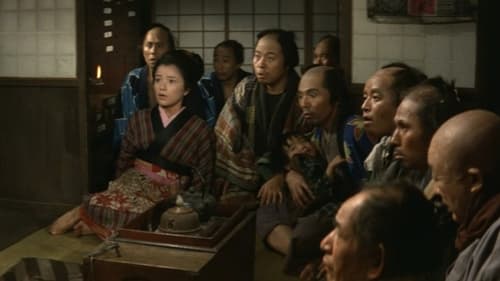
A group of ne'er-do-wells live happily in the slums of what is now Tokyo and have a number of adventures: they get drunk and go whoring, revenge themselves on cruel landlords, animate the corpse of a money-lender in order to frighten people. Then they assist at the marriage of a lovely girl and almost kill themselves gambling to provide her with a dowry.
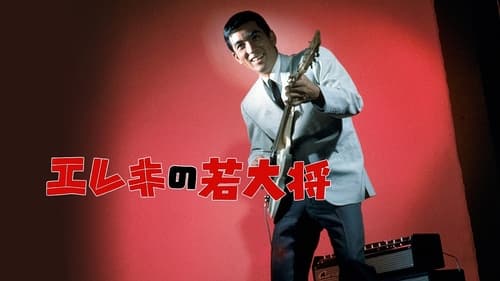
Riki Tanuma
Young Guy (Kayama) competes in an electric guitar competition and plays American-style football. Released alongside Invasion of Astro Monster.

田沼りき
海の若大将の紹介:1965年日本映画。永遠の若大将、加山雄三主演の「若大将シリーズ」第5弾です。第1作以来の水泳部に返り咲いた若大将が、ライバル青大将の船に乗り込み、小さな島である女性と出会いますが…。
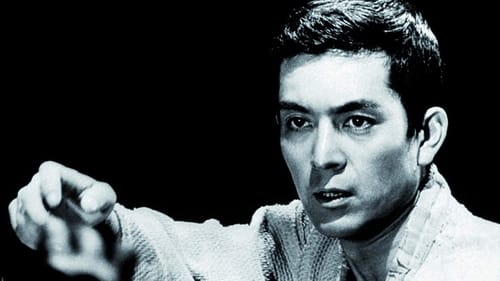
Old Lady
Remake of Kurosawa's films Sanshiro Sugata and Sanshiro Sugata part 2. A young man, Sanshiro Sugata, troubled by personal problems, takes up judo. His teacher, Shogoro Yano, is a devout man who has aroused the enmity of the local practitioners of jujitsu, the older and more accepted of the two sports. Sugata uses his newly learned prowess to gain a measure of respect from others; however, Shogoro insists that the sport has a spiritual side, a lesson Sugata has yet to learn. Eventually, in hand-to-hand combat with the father of a young woman he loves, he comes to understand the true meaning of judo.

Sabu was once a boy soldier but people in his village disliked him. He finally broke loose when his land was taken.

Hitoshi's Grandmother
東京オリンピック出場候補で、三段跳び選手の初等<はじめひとし>は、張り切り過ぎてアキレス腱のケガをし、故郷の実家に帰ってくる。 オリンピックの夢潰えて落ち込む中、ひょんなことから先祖が記した自伝を見つける。ホラを吹いては有言実行、刀一本で次々と出世をしたと記されたその伝記に感激した等は、一転、サラリーマンとして出世を志す。

Otami
A light comedy with Ayako Wakao charming her patients.

Okuni
A youth drama directed by Kiyoshi Horiike, who was adapted from "Young Tokyo no Yane" by Akira Saiga from "Oka wa Hanazakari" based on Yojiro Ishizaka. Miwako Kazuki left the English literature department and joined Toyo Critics. She was attracted by Noro, the editor-in-chief, whose wife died a few years ago and was now living with her two orphans and her old mother....
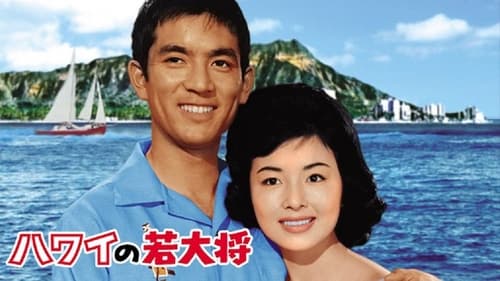
田沼りき
「続社長道中記 女親分対決の巻」の笠原良三と「ニッポン無責任野郎」の田波靖男が共同で脚本を執筆、「にっぽん実話時代」の福田純が監督した若大将シリーズの第四作。撮影は「妻という名の女たち」の内海正治と「ホノルル・東京・香港」の西垣六郎。

This is a factory area in downtown Tokyo, and Hikaru, nicknamed Pika-chan, is a nurse at the Mihara Clinic, a friend of the poor.
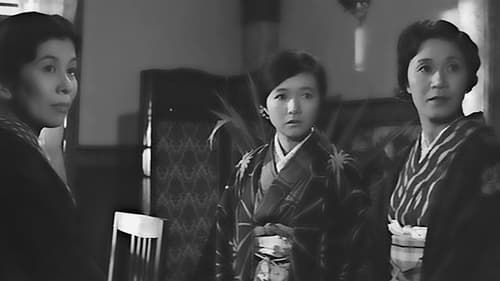
Considered one of the finest late Naruses and a model of film biography, A Wanderer’s Notebook features remarkable performances by Hideko Takamine – Phillip Lopate calls it “probably her greatest performance” – and Kinuyo Tanaka as mother and daughter living from hand to mouth in Twenties Tokyo. Based on the life and career of Fumiko Hayashi, the novelist whose work Naruse adapted to the screen several times, A Wanderer’s Notebook traces her bitter struggle for literary recognition in the first half of the twentieth century – her affairs with feckless men, the jobs she took to survive (peddler, waitress, bar maid), and her arduous, often humiliating attempts to get published in a male-dominated culture.

Riki Tanuma
Yuuichi Tanuma, our young hero, is a senior at Kyonan University and captain of the marathon team. His parents run a sukiyaki restaurant back in his hometown. When his allowance stops coming in, Yuuichi moves back in with his folks to work part-time. He has his eyes set on nationals in the fall, until one day he runs into a young woman who's fallen into trouble with the Lightning Gang...

Riki Tanuma
京南大学法学部の学生、田沼雄一は軽音楽部に所属する学生である。父親の友人である島川の経営するレストランで拳闘部のマネージャーである江口の引き起こした喧嘩に巻き込まれて店をめちゃくちゃにしてしまう。店を壊した責任と島川の娘・信子と結婚させようという親たちの企みもあって雄一はレストランで住み込みで働くことになる。レストラン隣の洋裁店で働く中里澄子と親しくなる雄一だが、同級生の京子や妹・照子の友達でファッションモデルのきみ子にも言い寄られるモテモテぶり。一方、拳闘部の助っ人として試合に出ることになった雄一は、万座のホテルに出張させられたりと練習も思い通りにはいかない始末。女性たちに言い寄られて好きな澄子にも誤解を受けて試合当日を迎えるのだった。

Hana
Two obaachans become fast friends listening to music in front of a record store. They both boast about their loving sons but in reality, one had just escaped a retirement home and the other was looking for an escape from her son and daughter-in-law. With nowhere to go, the two wander around, befriending a cosmetics salesman and a kind waitress who give them beer. This biting social satire starring two memorable grandmothers, scripted by Yôko Mizuki, picked up on Japan’s aging population problem far ahead of its time.
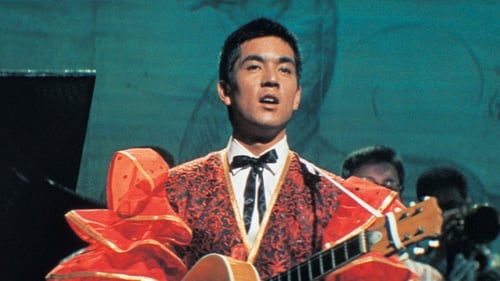
Riki Tanuma
京南大学法学部の学生、田沼雄一は水泳部のエースであり若大将というニックネームで呼ばれている。おっとりとした性格で授業中にドカ弁を食べる豪快さもある。麻布の老舗のすき焼き屋・田能久の長男でもあるが、謹厳実直な父親の久太郎とは意見が合わず、ぶつかってばかりいる。

Miho no sobo
In "The Other Woman" the children of a distinguished professor find that the woman they have come to regard as their racy and slightly disreputable Ginza aunt is really their mother.

A unique action film about a battle between two students and a yakuza over the eviction fee for a family that abandoned their home at the bottom of an artificial lake.

Follows the life of Tsuru, the poor daughter of farmers in Shinshu, Japan.

Focuses on the mutual antipathy of two groups of children in an Izu village.
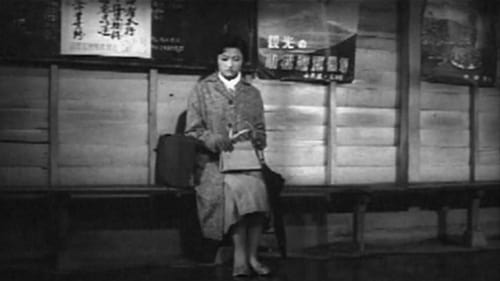
An Ishiro Honda film.

Alongside Tokyo's Sumida River is a ragpickers' settlement known as Ant Village. One night, a young Catholic girl, Satoko Kitahara, who has been baptized under the name of Maria, comes to offer her services. However, Ant Village is not just an ordinary vagrants' community but a fine autonomous organization, and as the municipal authorities have long been demanding that the people of Ant Village leave the site, Satoko is utilized to publicize the Village and win public sympathy. While being utilized in this manner, Satoko is nevertheless glad to be able to help the people of Ant Village, especially the children, and when the summer vacation comes she decides to take the children on an excursion to Hakone. To raise funds for this purpose she becomes a rag-picker herself.

A young, struggling couple are making every sacrifice so they will one day in the not-too-distant-future, have enough money to get married. As they have agreed on this procedure, it comes as a shock to the young woman to find out from her husband-to-be that he just loaned all the money they had saved to a friend. She is understandably miffed, and a big disagreement results. But after some time goes by, she discovers why the friend needed the money so badly, and the couple are back on solid footing again.
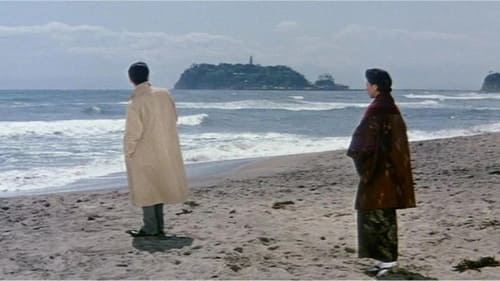
Hidé
A war widow with a young boy manages a farm with her bossy mother-in-law. When a reporter comes to interview her, the two begin an affair. He turns out to be married and won't leave his wife. Her older brother tries to marry off his children and hang on to/ extend his farm through an advantageous marriage in the face of threatened land confiscation and the desire of his children to get comfortable urban jobs instead of the backbreaking work in the paddy fields under parental control.
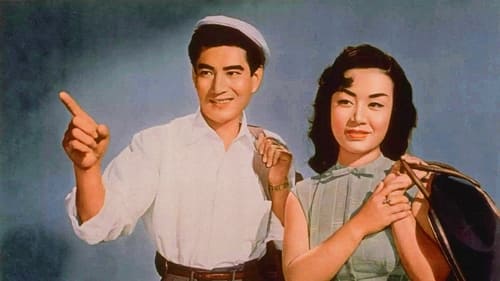
A friendly rivalry turns into romance for Yukiko, an elite female detective, and a handsome private eye named Mitamura while both are investigating the missing person's case from a wealthy family.
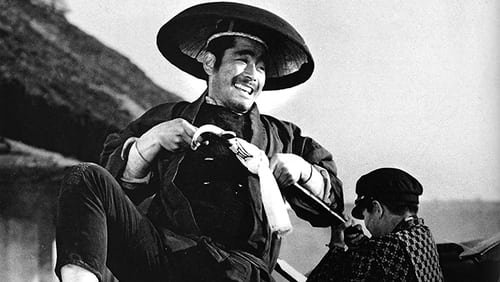
Otora
The story of Muhōmatsu, a rickshaw man who becomes a surrogate father to the child of a recently widowed woman.
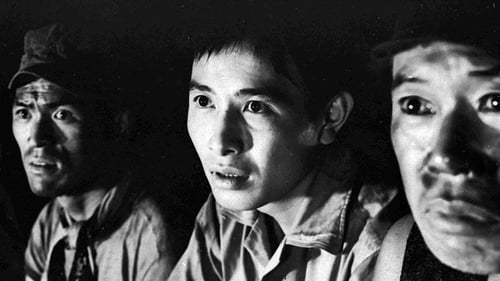
Kane Ishigaki
Based on a 1956 television feature on Japan’s national network, NHK, this is one of Uchida’s rarest films. A socially conscious drama with a contemporary backdrop, Dotanba focuses on the attempts to rescue a group of trapped miners. The title is a figure of speech — (essentially “last minute” or “eleventh hour”) — that refers to a situation of peril. The film boasts a script co-written by Uchida and Akira Kurosawa’s frequent screenwriter, Shinobu Hashimoto, and stars Kurosawa’s frequent star Takashi Shimura.

Grandmother
On Wings of Love is a 1957 Japanese romantic musical film directed by Toshio Sugie. It was Toho's highest-grossing film of the year and the first film released in Tohoscope.

Masu
In a military family, an illegitimate son is brutalized by his brothers. A patriarchal, feudalistic household where dissent is forbidden is used to reveal the whole imperialist system that afflicted Japan between 1921 and 1946. Winner of the Crystal Globe at the Karlovy Vary Film Festival.
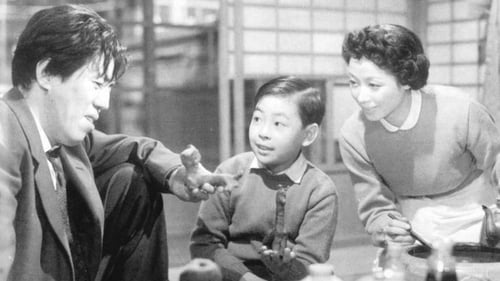
In this Golden Globe winner for Best Foreign-Language Film, director Heinosuke Gosho -- a master chronicler of Japanese middle-class life -- presents the story of Kiyoshi Yoshida (Koji Shitara), who feels estranged from both parents after his father returns from war. How the boy adapts to life with the virtual stranger his father has become is the film's focus. Chikage Awashima, Yûnosuke Itô and Yoshiko Kuga also star.

Shochiku Production on typhoon

Dotanba - Last Minute

Japanese drama film.

Omaki
Oiwa has been searching for the one who killed her father for a long time. She comes to Yedo and sees a man named Naosuke. The film is based on the kabuki classic: Toukaidou Yotsuya Kaidan (1826) written by Tsuruya Nanboku and is one of the most famous ghost stories throughout Japan.

Poor social conditions badly affect the relationship between a married couple, when the husband, who is desperately searching for work, fails to notice the terrible sacrifices made by his wife when she accepts a job at a local inn.
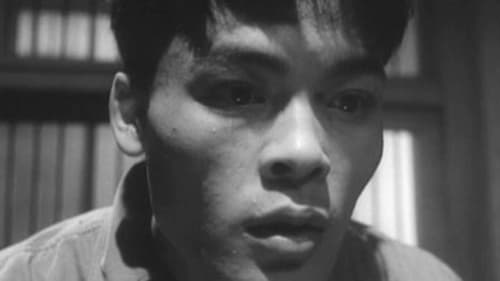
Tsuna Uemura
Police beat a murder confession out of four innocent men who are then sentenced to death. Based on a true story.

Japanese drama film.
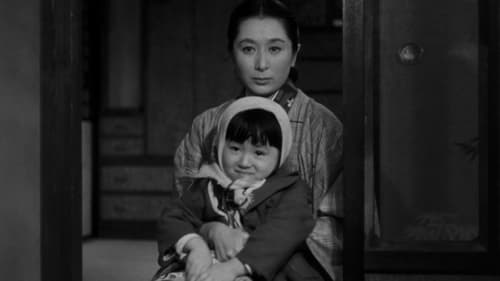
Hide
Fumiko, mother of two children and wife of an unfaithful man, shares her family life with her budding vocation as a poet. The beginning of her successful literary career coincides with her divorce and her breast cancer diagnosis. In the last stage of her life, she meets a young journalist from Tokyo who wants to write a story on her life.

From runaway brides to a typhoon, the continued adventures of Ushikata police station.

Five years have passed since the three comrades who saved their lives on the Burma Campaign-Kenichiro Kishi, Eiji Shiga, and Daizo Kobayashi promised to meet again five years later at the platform of Shinagawa Station, which was crowded with repatriates. , The day of reunion is approaching.

A boy falls in love with a girl. Neither of them know that she's to be sold to a brothel.

Tatsu, the mother
Lending money, job hunting for civilians and babysitting. All these things are usually not listed on a policeman's job description. But for the officers of this local police station, it‘s part of their daily routine. One day, patrolman Yoshii (Hisaya Morishige) finds an abandoned baby and a six year old girl standing in front of the station. When he's declined by the welfare office, orphanage and local health clinic to take them in, he decides to take care of them himself.

Three young women make a suicide pact, but they grow to have a better understanding of themselves.
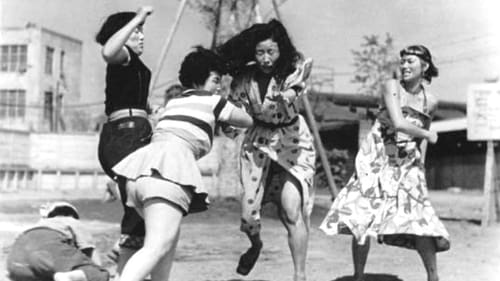
Toku, a factory worker gives food to a starving woman, Tsuru, who then follows him home. He shares a shack in a shanty village in Kawasaki with his friend Pin-chan. The two men try to get rid of her but then let her stay when she gives them money. Tsuru tells the people of the village that she lost her job due to a strike, then was robbed of her severance pay, then sold to a brothel in Tsuchiura. She ran away with a friend from Kawasaki. Toku and Pin-chan sell her to a geisha house and spend the money. She is thrown out. The owner demands his money back. Tsuru earns the money to pay their debt by working as a prostitute outside the station. The other prostitutes beat her. She fends them off with a policeman's revolver and is then shot dead by the police.

Osan
A young woman, who must support her father as a middle-aged man's mistress, finds herself falling in love with a student closer to her age.
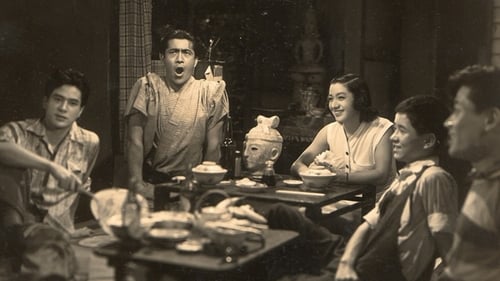
Matsuyo
Following the Second World War, the lives of various people in a poverty-stricken area of Tokyo are entertwined. Pachinko parlor girls, shoeshine boys, a maker of costume jewelry, and a streetcorner artist all struggle to make their livings and to find happiness in difficult surroundings.

Kiyo Yamamoto
Directorial debut by Umetsugu Inoue, the famous director of Musicals

Kikuyo

Ikeuchi was captain of the K - University ice hockey team. The daughter Shikotsuko of Ginza 's western restaurant "Piccolo" was also a female student at K University and was a figure player. They had a dream of being dispatched to Oslo in the Olympic Games and were struggling in each way. Mizuno who runs a sports equipment store in Ginza, showed the geisha by guiding the junior's Ikeuchi and others to the shop of Shimbashi one day.

Kiyo
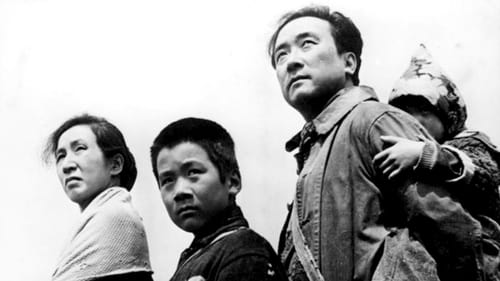
Akiyama grandmother
About the struggles of day labourers to achieve dignity and a standard of living above the starvation level. Utilising the Zenshinza theatrical troupe.

Adaptation of a novel by Yojiro Ishizaka, originally released in two parts.

A bar girl tries to pass her three children, each from a different father, to rural relatives.

Seeds
An early film by Kon Ichikawa
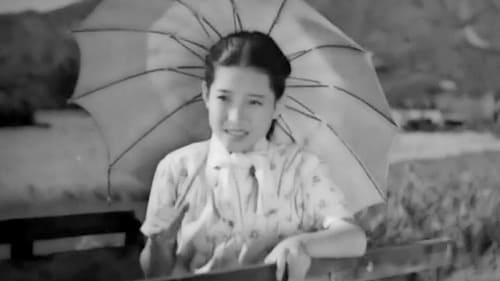
Three humorous love stories set in rural Japan.

Oseki, old maid
Saheita, the final heir of a once rich and respectable family, can't refuse the many villagers that come to him for favours and money, even though he is on the brink of bankruptcy. Around town he is better known by his nickname Mr. Shosuke Ohara.
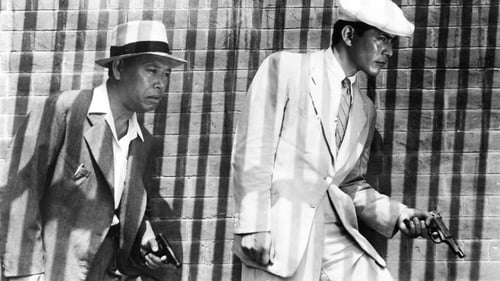
Kogetsu Hotel manager
A bad day gets worse for young detective Murakami when a pickpocket steals his gun on a hot, crowded bus. Desperate to right the wrong, he goes undercover, scavenging Tokyo’s sweltering streets for the stray dog whose desperation has led him to a life of crime. With each step, cop and criminal’s lives become more intertwined and the investigation becomes an examination of Murakami’s own dark side.

Japanese comedy film.

Kohei's Mother
Part 2 starts where the first film ended, with Iemon disposing of the bodies of his wife and Kohei, marrying upward, and being blackmailed by the evil Naosuke.
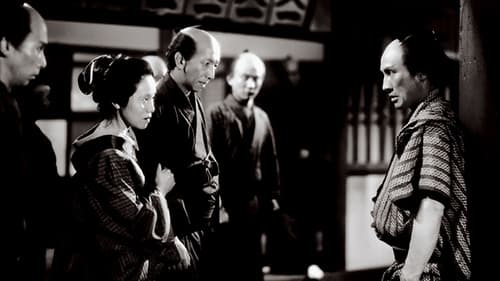
Okura
Iemon Tamiya is an impoverished masterless samurai who craves a better life, which he cannot have because of his marriage to Oiwa, who is completely devoted to her husband.

The tale of a feudal swordsman who cynically takes no responsibility for anything, relegating it to others, and then taking the credit.

Japanese adaptation of Marcel Pagnol's play "Marius", set in early XXth century Japan.
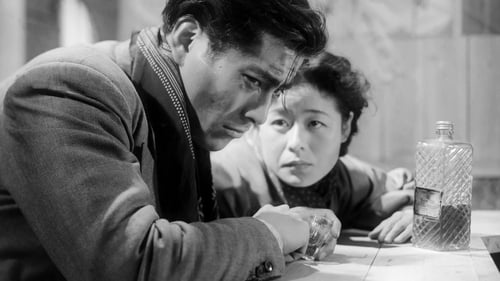
Bâya
Doctor Sanada treats gangster Matsunaga after he is wounded in a gunfight, and discovers that he is suffering from tuberculosis. Sanada tries to convince Matsunaga to stay for treatment, which would drastically change his lifestyle. They form an uneasy friendship until Matsunaga's old boss Okada returns from prison.

Tama Takemura
Slice of life film centered around a couple of years in the life of a rural high school girl.
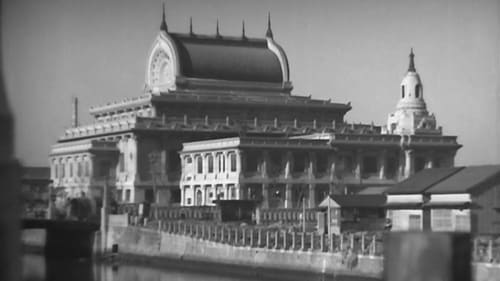
Tané
An errant salaryman's son gets lost until a man from the Tokyo tenements brings him to vendor Tane, who's reluctant to let the kid board.

Lord for a Night is a 1946 Japanese film directed by Teinosuke Kinugasa.
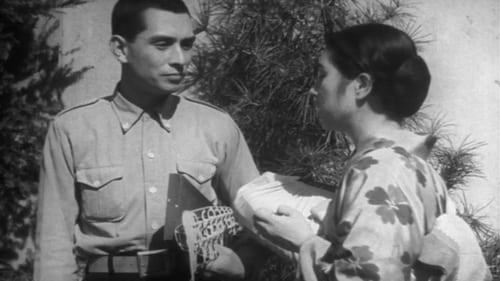
Wife of bathhouse owner
The few residents left on the streets in Tokyo share their individual stories and come to understand the melancholy of saying goodbye.

Japanese Warmovie

原研吉と渋谷実の映画(1943年)

Pretty Oshige is deceived by her first love. After this, she lives a hard lifestyle, working at a number of jobs. Her only pleasure is her nephew, who eventually becomes a merchant marine. When Oshige meets her old love ten years later, she is able to forgive him and even thank him for the path her life has taken.

An older sister and brother (Mieko Takamine and Masayoshi Otsuka) come to visit their grandfather (Takeshi Sakamoto) who lives deep in the mountains. As for their parents, father was serving in the South Seas and mother died of illness on her way home. So, the brother, who is still young, will live alone with his grandfather whilst the sister goes away to study to become a teacher.

Most of the students studying Ikebana with Kozoe Iemoto are daughters of rich Tokyo families. Kozoe meets and grows close to a doctor who proposes marriage but whose mother harbours ill feeling towards her because of an incident in the mountains where a child got into difficulties. Kozoe rejects the proposal but falls ill and when she recovers, decides to devote herself entirely to the world of flower arranging.

Landlady
Uta’s mother died when she was six years old; her father she never met. She was forced to adopt a traveller’s life when her grandmother died, and now she is a dancer and part of a family of actors who travel from town to town, setting up street performances. A way of escape from this marginal existence arises when she gets the chance to move to tea merchant Hiramatsu’s place, where she is asked to teach his daughter to dance.
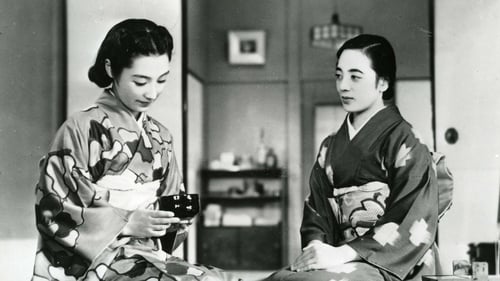
After the death of her husband, Mrs Toda and her youngest daughter receive a frosty welcome from the extended family.

Okei
A spirited young teacher challenges the conservative school employing her with liberal thinking and teaching methods.

A 1937 Japanese film.
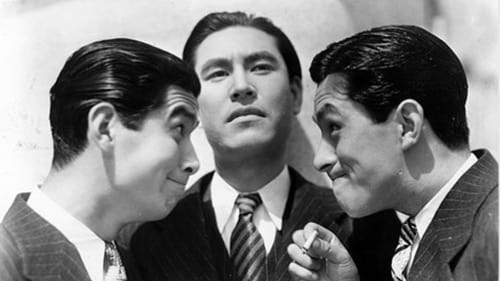
Woman at tobacco shop
Three men vying for the same job end up chasing the same girl in this comedy-drama from noted Japanese director Yasujiro Shimazu.

Chiyoko Sugiyama
A professor, Komiya, and his bossy wife, Tokio, are to look after Setsuko, their high-spirited niece from Osaka. Despite being a minor, Setsuko is a liberated woman who does whatever she wants, including smoking. She even convinces Koyima to take her to a geisha house. When she gets rather tipsy, the professor calls Okada, one of his students, to take her home. The wife becomes suspicious of Setsuko when she sees Okada bringing her home.

Miura's mother
Episode in the life of a composer of a popular Japanese song.

The narrative is about a woman who faces hard times, when her husband is arrested for a crime committed by his boss. The woman also has a child to look after, and they end up meeting several colorful personalities.
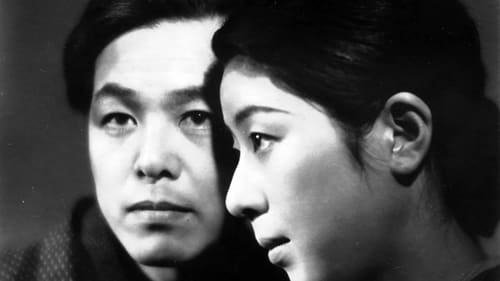
Tsune Nonomiya (O-Tsune)
A silk factory worker is persuaded to support her son's education up to a college level despite their poverty. Many years later, she travels to Tokyo to visit her son.

A musical film made for the inauguration of Shochiku's Ofuna Studio, with an all-star cast of the era.

Otoku, Seiichi's mother
Otoku asks her brother Bunkichi to speak with her son Seiichi, a young man for whom sacrificed everything but who now seems to be headed for a wastrel life. Bunkichi admonishes the boy to study harder, but it seems his uncle's advice may already be too late.

Oyuki
A melodrama about a businessman's relations with the three women in his life.
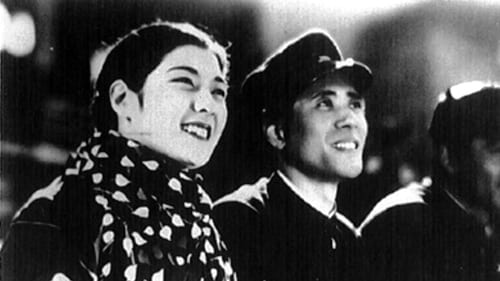
Wife of the b.h. owner
In a Tokyo boarding house a group of students and recent graduates struggle to complete their studies and find jobs. Considered a lost film.
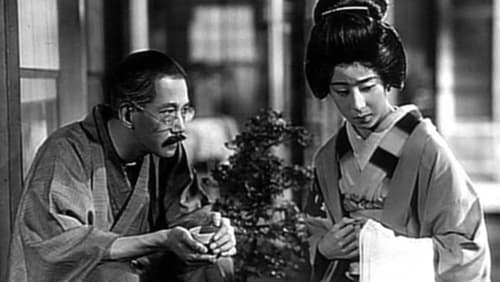
Okane
Family drama. A middle-aged father has just married off his third daughter, but still has his nine year old son to raise whom he resents as he was unwanted. (British Film Institute)

Otsune
Kihachi, an unemployed worker, wanders around the industrial flatlands of Tokyo's Koto district with his two young sons, Zenko and Masako. He is unable to find a job and has to rely on his sons catching stray dogs to earn reward money for their meals. As days go by, Kihachi and the boys no longer have enough money to stay at an inn for the night. Luckily for him, he encounters an old friend, Otsune, who finds him a job and allows them to stay at her eatery house.

Okimi
A period piece about the love of a wealthy blind woman, a teacher of koto and shamisen, and her devoted manservant. Based on a novella by Tanizaki Junichiro.
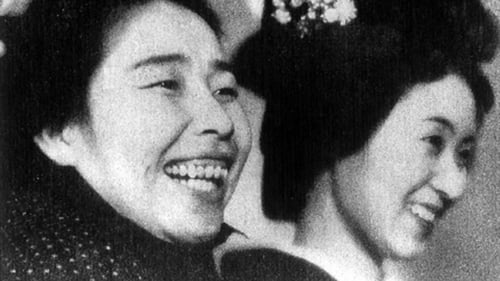
Otsune
In a back alley of the Shitamachi district of Tokyo, Kihachi bears witness to a series of romantic complications involving the inhabitants of the neighborhood. Considered to be a lost film.
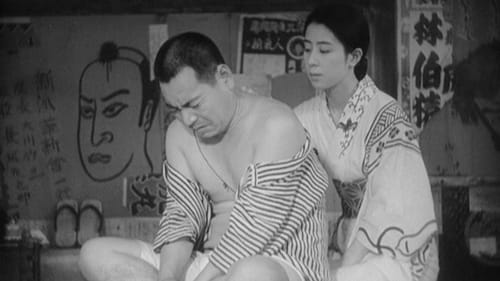
Otsune, Ka-yan
小津安二郎が原作(ジェームス・槇のペンネーム)と監督を担当したサイレント作品。小津安二郎が原作(ジェームス・槇のペンネーム)と監督を担当したサイレント作品。

Period film from 1934.
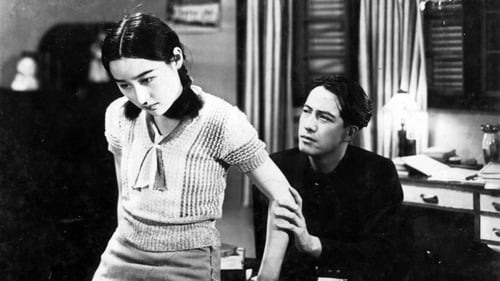
Hamako
Keitaro is a law student and Yaeko s a high school girl. They are neighbors, and their friendship is starting to develop into something more romantic. Then, Yaeko's sister Kyouko has a breakup with her husband and returns home. Kyouko is clearly interested in Keitaro and Yae becomes anxious.

Chabu-ya no souji-fu
The film tells of the strained relationship between a mother and her two sons after the death of the family patriarch.

A melodrama by noted auteur and father of director Yoshitaro Nomura, Hotei Nomura. This is apparently the first adaptation of Izumi Kyoka's The Romance of Yushima.

Heinosuke Gosho evokes in this film the family conflicts engendered by the eternal problem of a father who projects his professional desires on the life of his son. The sister Machiko is the essential link that will allow everyone to apologize to each other and achieve reconciliation

Otome
坂本武演じる喜八を主人公とした「喜八シリーズ」の第一弾。長屋で息子の富夫と二人で暮らす喜八は、日雇い労働者として工場に勤めている。同僚で隣に住む次郎と一緒に演芸場へ出かけた喜八親子は、その帰り道で春江という女性と出会う。彼女は工場をクビになり、行く当てがないという。喜八は、行きつけの食堂の店主である“かあやん”に、春江を泊めてほしいと頼み込んだ。春江は食堂に住み込みで働かせてもらうことになった。富夫は年甲斐もなく春江に熱を上げるが、彼女は次郎に興味を持っていた。

A mournful masterpiece by Kinugasa Teinosuke
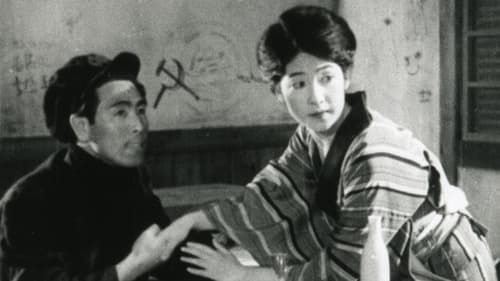
Landlady
In the formally ravishing Every-Night Dreams, set in the dockside neighborhoods of Tokyo, a single mother works tirelessly as a Ginza bar hostess to ensure a better life for her young son—until her long-lost husband returns.
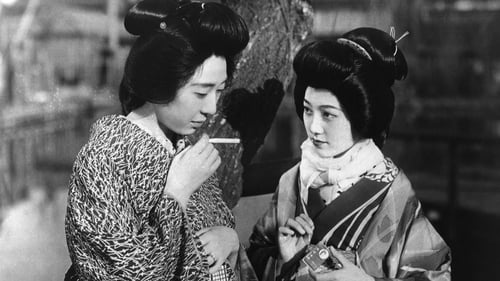
An aging geisha, whose angry teenage son is ashamed of her profession, works alongside a young geisha, resentful of her family for forcing her into a life of ignominy.

A young couple is harrased by an uncle.

Geisha
"The Dancing Girl of Izu" tells of the story between a young male student who is touring the Izu Peninsula and a family of traveling dancers he meets there, including their youngest girl. The student finds the naïve girl attractive even though he eventually has to part with the family after spending memorable time together.

Neighbor
This pair of gentle yet witty and inventive comedies from the director of The Neighbour's Wife and Mine typify both the formal experimentation of early Japanese sound cinema and the social milieux that Shochiku tended to depict. 'Virtually plotless, and feeling more like comic sketches than fully developed stories,' writes Arthur Nolletti, Jr, 'these light comedies, or farces, take a wholly trivial matter (often a socially embarrassing situation) and use it as a springboard for a succession of gags.' Much of the films' distinction comes from the wit of Gosho's direction, the imaginative use of the new sound technology and the charm of the acting, particularly of the heroines (Kinuyo Tanaka in Bride; Hiroko Kawasaki in Groom). Yet in both films, Gosho finds room for some shrewd observation of character and environment, subtly exploring the values and assumptions of the suburban petit bourgeoisie.

Maid
A young man falls in love with a prostitute and is disowned by his family. He is then drafted, and heads off to war. Script exists - considered to be a lost film.

Saiki's mother
When a young man inherits his father's lucrative business, he cheats the system to set up three of his college friends with jobs.
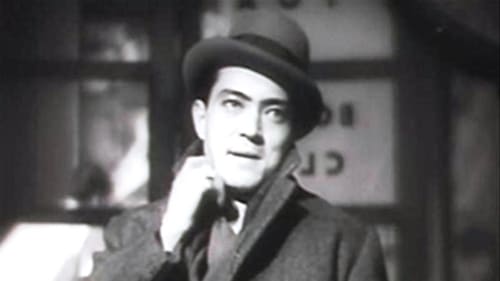
Mistress of hotel
Early Japanese sound film, a remake of Josef von Sternberg’s DOCKS OF NEW YORK set in Yokohama.

Nui, Fuwa's wife
This 1932 adaptation is the earliest sound version of the ever-popular and much-filmed Chushingura story of the loyal 47 retainers who avenged their feudal lord after he was obliged to commit hara-kiri due to the machinations of a villainous courtier. As the first sound version of the classic narrative, the film was something of an event, and employed a stellar cast, who give a roster of memorable performances. Director Teinosuke Kinugasa was primarily a specialist in jidai-geki (period films), such as the internationally celebrated Gate of Hell (Jigokumon, 1953), and although he is now most famous as the maker of the avant-garde silent films A Page of Madness (Kurutta ichipeji, 1926) and Crossroads (Jujiro, 1928), Chushingura is in fact more typical of his output than those experimental works. The film ranked third in that year’s Kinema Junpo critics’ poll, and Joseph Anderson and Donald Richie noted that 'not only the sound but the quick cutting was admired by many critics.
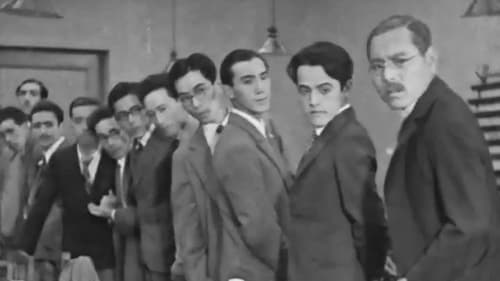
Sensei no tusma
Mr. Omura, a teacher, leads a group of male students in an outdoor drill. One slight, comic young man, Shinji Okajima, has no shirt under his jacket; he scratches at fleas and makes faces behind Omura's back. Jump ahead several years, Shinji is married with three children. He sells insurance, and on the company's annual bonus day, he protests when an older worker is fired. Shinji loses his own job as a result, and he and his wife must find ways to cope. Lassitude, pride, the demands and needs of young children, and relationships from bygone school days all play a part in the outcome of their struggle.

The three-hour Ai yo jinrui to tomo ni are / Love, Be with Humanity (1931) starts as a satire of alienation in the world of money, develops into a lumberland epic with a forest fire on Sakhalin Island, turns into a tragedy of King Lear dimensions, and manages to amaze the blasé audience with a happy end in the Wild West.

Sono haha (Hiroko's mother)
Graduate Okajima finds his old-fashioned beard makes life difficult in a comedy exploring the tension between tradition and modernity.

Landlady
Tetsuo Nomoto, a young graduated student tries to find a decent job by himself. Later on, he will marry his girlfriend, Machiko, whom he hides the fact that he has no job. Hardships come quickly, which forces Machiko to find a job in a bar. [Partially lost film; only 12 minutes survive.]
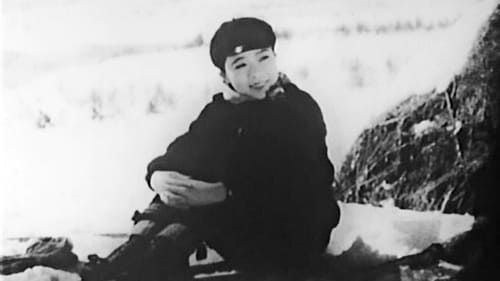
her aunt
Students Watanabe and Yamamoto unknowingly compete for the same girl.

Geisha's house landlady
A young man falls for one of the geisha working in the house where he lives. However, the romance doesn't find favour with his father or current girlfriend. Considered to be a lost film.
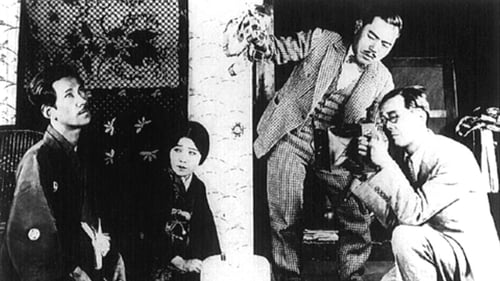
Ritsuko, Takai's wife
A hen-pecked man works as his artist wife's model and a house-husband. When her patron flirts with her and humiliates him, he decides to get revenge by trying his own hand as a painter. Considered to be a lost film.

Two criminal brothers try to go straight but face opposition from one of their criminal cohorts. Considered to be a lost film.

勤勉な商事会社の新社員(諸口十九)が社長のカラボタンの事で出世をする。だがつまらぬことで彼の妻(筑波雪子)と喧嘩をし、妻が家出をして大騒ぎをするが、元に戻るという物語。




















































































